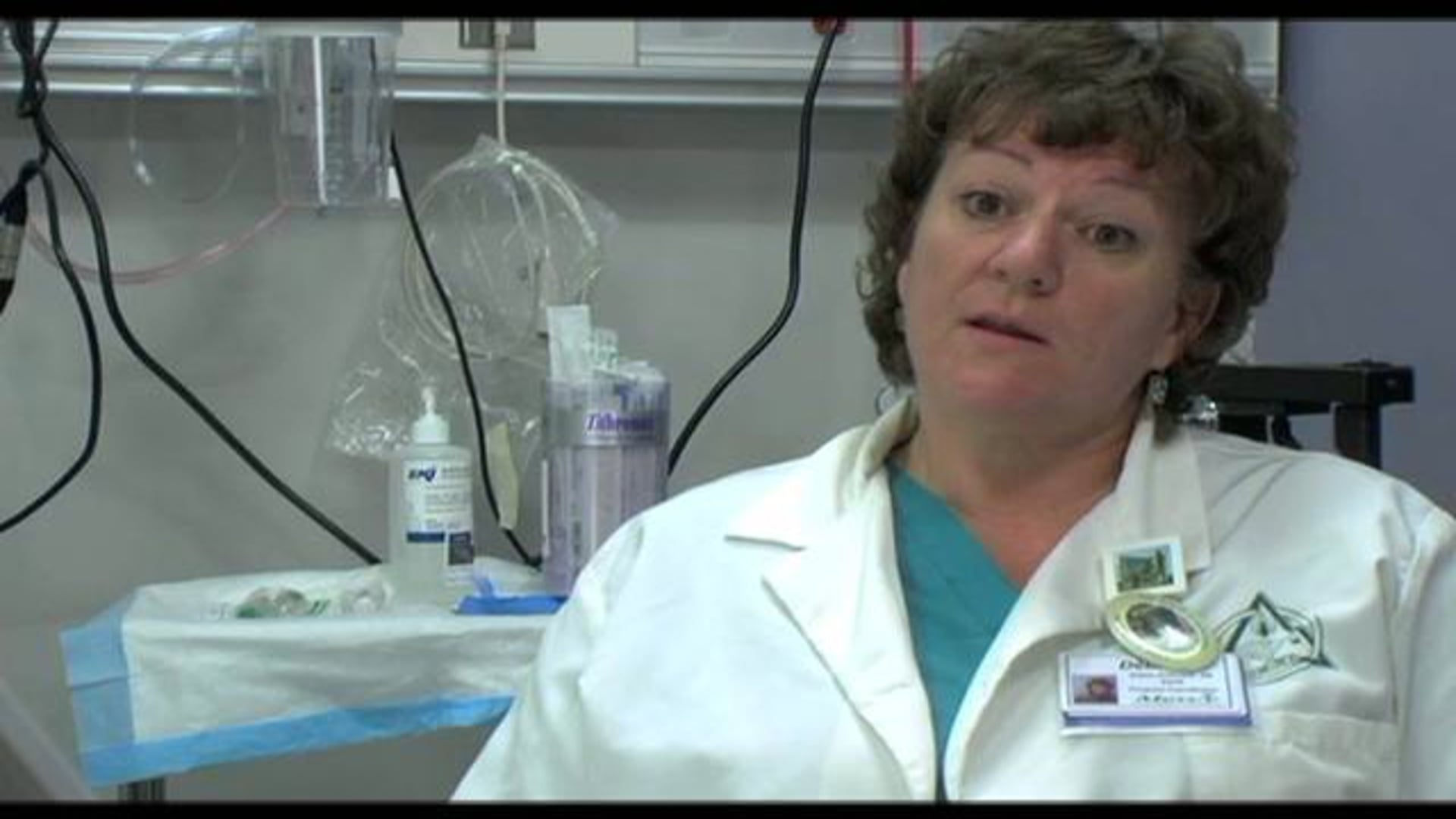Beyond the “psychosomatic”
JACQUELYN CAMPBELL: When we first talked about domestic violence, we talked about battered women having a whole range of psychosomatic complaints. We used to talk about it in those kinds of terms, as though it was all in their heads. And of course as we learned more about the human body, and health conditions, we know that the mind and body are inseparable. That the stress response affects a lot of different areas of health. So one of the things, for instance, that we found, is that especially for African- American women, who have other genetic risk factors for hypertension, that we find that they experience, if they’re abused, that they’ve experienced hypertension emerging at a younger age, and it’s harder to control. So we have the effect on cardiovascular health, as well as some of the things we’ve known for a long time, in terms of abused women having a lot of chronic pain. Now you can think about that in terms of a psychosomatic kind of complaint, but what we have found is that much pain is related to old injury. So for instance, one of the things that women often times say is, I get slammed against the kitchen cabinets.
Multiple, cumulative injuries
JACQUELYN CAMPBELL: They’ll say, you know, it’s not that bad,. it’s some pushing and shoving, and sometimes he’ll slam me against the cabinets. Well if you think about it, if you get slammed against the kitchen cabinets over and over again, eventually you’re going to develop chronic back pain. It’s going to be injury, it’s gonna be constant injury. We find that many times many women have been knocked unconscious by an abusive incident and never treated for it. They may have had what we now know to call traumatic brain injury. Many times subtle concussions that, that in football players we’re beginning to recognize it’s really an issue, if you have a series of multiple concussions, this is not good. And so no wonder abused women have chronic headaches, have various what we call in the healthcare system soft neurological signs. In other words, subtle neurological symptoms that they don’t know how to explain to themselves let alone to a physician. And unless that physician or that nurse practitioner is smart enough to really do a trauma history and find out that they’ve been abused and find out that this is multiple injuries that have never actually been treated or haven’t been treated in a cumulative way, they don’t see the true picture, and they don’t know the true diagnosis. We also find that there’s some complex physiological effects of stress on the immune system. Stress activates the autoimmune system, so battered women may have a tendency to have more asthma attacks. That their immune system is being activated all the time by these stress responses. They may have more fibroids, this is one of the things
Impact of forced sex
JACQUELYN CAMPBELL: I also noticed with abused women, as well as a whole host of g-y-n problems, pelvic pain, urinary tract infections, these kinds of things. Sexually transmitted diseases that are related to the forced sex that happens to 40 to 45% of abused women. And now one of the tragic consequences we’re seeing with domestic violence, and we have been able to document it better in Africa because there’s more HIV in Africa, but even here in the United States is the intersection of domestic violence and HIV AIDs. Where women who are abused are significantly more likely to have contracted AIDS. It’s usually that they’ve contracted it from their abusive partner, who has had other partners that she doesn’t know about. And or who forces her into sex, and we always talk about you need to negotiate condom use with your partner. Well if you’re in an abusive relationship — negotiation — it’s not a level playing field. So these are the kinds of things that we’re seeing, a whole realm of healthcare problems. We also see abuse during pregnancy with consequences to both the unborn child and the mom. And then we see the mental health effects that are pervasive and serious: the increased depression, the increased suicide amongst abused women. Increased PTSD, post traumatic stress disorder, that kind of trauma response. And we know how to recognize that and treat that now in veterans of war, and although we have some good treatment, for women who have been raped, they’ve not been used extensively with women who’ve been abused and we need to do that So there’s a whole range of health care problems that battered women incur. They have GI problems, irritable bowel syndrome, and often times these health care problems continue for the woman as a chronic health problem long after they’ve gotten themselves out of the abusive relationship. Unfortunately, their body has been scarred by these ongoing abusive incidents as well as their psyche.



